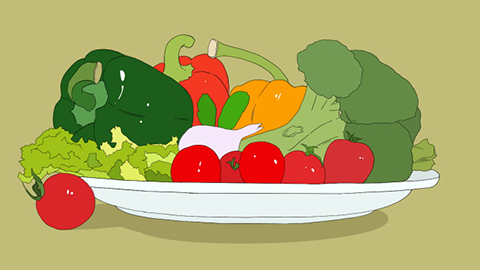What should patients with hypertension and high blood lipids avoid eating?
Generally speaking, patients with hypertension and hyperlipidemia do not have absolute dietary restrictions, but it is recommended to avoid high-salt foods, foods high in saturated fats, trans fats, high-sugar foods, and alcoholic beverages. Additionally, certain medications such as ibuprofen sustained-release capsules, dexamethasone tablets, prednisone acetate tablets, and ephedrine hydrochloride nasal drops should be used cautiously or avoided to prevent worsening of their conditions. If in doubt, it is advisable to consult a doctor in advance. Detailed explanations are as follows:

I. Foods
1. High-salt foods: Such as pickled vegetables, salted meats, and preserved products. Excessive sodium intake can cause fluid retention, elevate blood pressure, increase vascular burden, and hinder blood pressure control. Daily salt intake must be strictly limited.
2. Foods high in saturated fat: Such as fatty meats, animal offal, and butter. These foods are rich in saturated fat, which can raise levels of low-density lipoprotein (LDL) cholesterol in the blood, promote atherosclerosis, and worsen hyperlipidemia.
3. Foods containing trans fats: Commonly found in fried foods, margarine, and pastries. These fats can simultaneously raise bad cholesterol (LDL) and lower good cholesterol (HDL), increasing the risk of cardiovascular disease. They must be strictly avoided.
4. High-sugar foods: Including candies, desserts, and sugar-sweetened beverages. Excessive sugar intake can be converted into fat, leading to weight gain and potentially affecting lipid metabolism, indirectly exacerbating hypertension and hyperlipidemia.
5. Alcoholic beverages: Such as white spirits, beer, and wine must all be limited. Alcohol can directly raise blood pressure, interfere with lipid metabolism, reduce the effectiveness of antihypertensive and lipid-lowering medications, and increase the risk of cardiovascular and cerebrovascular events.
II. Medications
1. Ibuprofen sustained-release capsules: As a nonsteroidal anti-inflammatory drug (NSAID), long-term or excessive use may lead to fluid retention, elevated blood pressure, and potential kidney damage. Patients with hypertension and hyperlipidemia should use this medication for a short duration only under medical supervision.
2. Dexamethasone tablets: A glucocorticoid, its use without a clear medical indication can cause fluid retention, elevated blood sugar, and abnormal lipid levels, worsening hypertension and hyperlipidemia. Strict adherence to medical instructions is essential.
3. Prednisone acetate tablets: Also a glucocorticoid, taking this drug without medical necessity can easily lead to elevated blood pressure, lipid disorders, and even osteoporosis. Patients with hypertension and hyperlipidemia should use it cautiously.
4. Ephedrine hydrochloride nasal drops: Containing ephedrine, improper use can cause vasoconstriction and sudden blood pressure elevation, increasing cardiovascular and cerebrovascular burden. Patients with hypertension and hyperlipidemia should avoid its use or opt for alternative medications.
5. Compound norethisterone tablets: An oral contraceptive, some of its components may raise blood pressure and lipid levels, increasing the risk of thrombosis. Patients with hypertension and hyperlipidemia, especially middle-aged and elderly individuals, should avoid using this type of contraceptive.
Daily diet should follow the principles of low salt, low fat, and low sugar intake. Eating more fresh vegetables, fruits, whole grains, and high-quality protein, along with regular physical activity to manage weight, is recommended.





